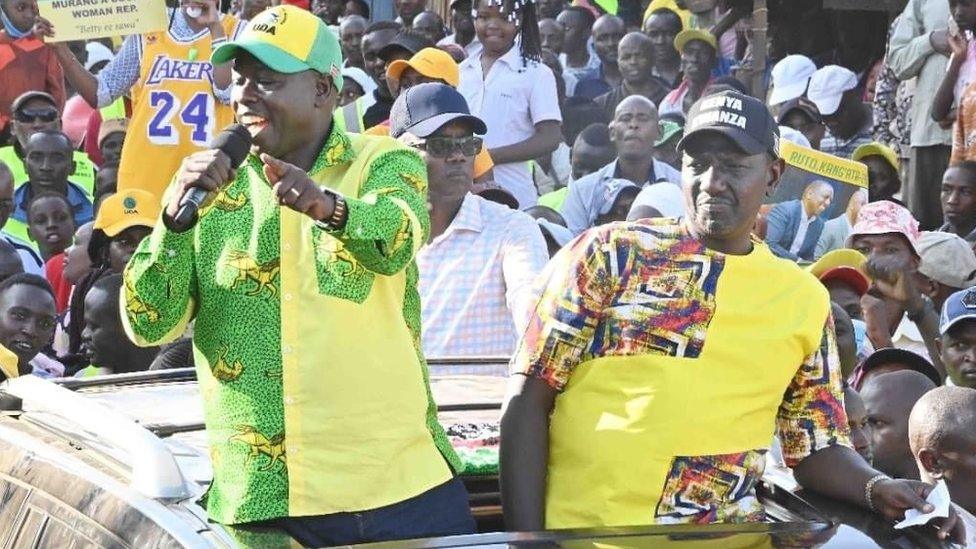Kenya elections 2022: William Ruto picks Rigathi Gachagua as running mate
- Published

Rigathi Gachagua (L) said he would work with William Ruto (R) to address the country's ailing economy
Kenya's Deputy President William Ruto, one of the frontrunners in this year's presidential election, has picked businessman Rigathi Gachagua as his running mate.
Mr Gachagua is facing trial on charges of corruption and money-laundering worth $65m (£53m), which he denies.
He is from Kenya's largest community, the Kikuyu, whose support is vital in Kenya's ethnically charged elections.
For the first time since independence, neither of the favourites is Kikuyu.
Mr Ruto's main rival, opposition leader Raila Odinga, was also due to announce his running mate on Sunday but has delayed it until Monday - the deadline set by the electoral commission.
The race between the two is expected to be close, with President Uhuru Kenyatta backing his former rival Mr Odinga rather than his own deputy.
Speaking after the announcement, Mr Gachagua said he would work with Mr Ruto to address the country's ailing economy.
Mr Ruto is the presidential candidate of the Kenya Kwanza (Kenya First) coalition, which comprises more than 10 political parties.
Mr Gachagua has previously worked as a district officer and once served as the personal assistant of President Kenyatta during his stint as minister in charge of local government.
Since 2017, he's served as the member of parliament for Mathira constituency in Central Kenya, which has produced three of Kenya's four presidents - Jomo Kenyatta, Mwai Kibaki and Uhuru Kenyatta.
On Saturday, residents of Mr Gachagua's hometown protested at delays in naming Mr Ruto's running mate.
With no prominent Kikuyu politician running for president in the coming elections for the first time in history, the choice of a running mate is seen as crucial, and has been dominating headlines and social media.
Both Mr Ruto and Mr Odinga have set their eyes on the Central region which is expected to have a big say in who becomes Kenya's next president.
Politicians from the area have insisted that whoever gets into State House must guarantee the interests of the community.
Ethnic Kikuyus, and people from the wider Central region, have massive influence on both the economy and politics.
Candidates know that their support on 9 August will be crucial.
More about Kenya's elections:
Kenya's Deputy President William Ruto insists that he and President Kenyatta "are not enemies"